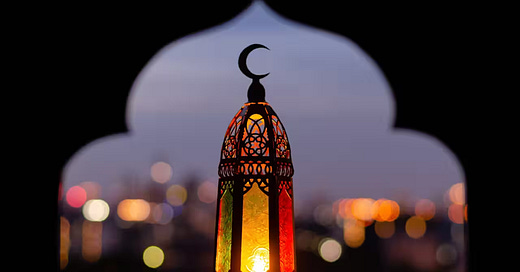As we embark on our exploration of Eid, it's essential to revisit the sacred month of Ramadan. Ramadan, one of the holiest months in Islam, is a period of spiritual reflection, self-discipline, and heightened devotion. During this month, Muslims abstain from food, drink, and other physical needs from dawn until sunset, fostering empathy for those less fortunate and strengthening their connection with God. For a deeper understanding of Ramadan and its significance, we encourage our readers to refer back to our previous article, ‘Harmony Week’.
Now, let's turn our attention to Eid, the joyous culmination of Ramadan. Eid al-Fitr, also known as the Festival of Breaking the Fast, marks the end of fasting and is celebrated by Muslims around the globe. It falls on the first day of Shawwal, the tenth month of the Islamic lunar calendar, following the sighting of the crescent moon. In 2024, Eid al-Fitr was observed on the 10th of April. This auspicious occasion is eagerly anticipated by Muslims of all ages, who come together to rejoice in the blessings of Ramadan and express gratitude for the spiritual growth and renewal experienced during the holy month.
Eid al-Fitr is not merely a day of feasting and merriment; it is a testament to the resilience, faith, and unity of the Muslim community. Throughout the month of Ramadan, individuals engage in acts of worship, self-reflection, and charity, seeking purification of the soul and forgiveness from the Almighty. The completion of this spiritual journey culminates in Eid, a day of joyous celebration and gratitude.
For Muslims, Eid also represents a time of spiritual rejuvenation and renewal. It serves as a reminder of the mercy and compassion of Allah, who rewards the steadfastness and devotion of His followers. By observing fasting, engaging in prayer, and practicing self-discipline during Ramadan, Muslims reaffirm their commitment to their faith and strengthen their bond with their Creator.
Moreover, Eid holds deep cultural and social significance. It is a time for families to come together, reconcile differences, and foster love and harmony. Through shared meals, festive gatherings, and acts of generosity, individuals reaffirm their ties to their loved ones and their communities, embodying the values of compassion, kindness, and solidarity that lie at the heart of Islam.
The festivities of Eid are marked by a myriad of joyous events, activities, and mouth-watering delicacies. In homes and mosques, special prayers are offered, followed by vibrant gatherings where friends and family come together to share laughter and joy. Delicious treats such as sheer khurma, korma, and samosas adorn dining tables, tantalizing taste buds with their exquisite flavours.
Here in Australia, the observance of Ramadan and Eid may differ slightly due to the multicultural landscape and work commitments. Many Australian Muslims navigate fasting and prayer while balancing professional responsibilities by adjusting their schedules or seeking understanding from employers. Community initiatives, such as workplace accommodations and flexible hours, enable individuals to fully engage in spiritual practices while fulfilling work obligations.
As we draw the curtains on our exploration of Eid, let us reflect on the universal themes of unity, compassion, and celebration that transcend cultural and religious boundaries. Eid serves as a poignant reminder of the power of community, the beauty of diversity, and the shared values that unite us as humanity.














Share this post